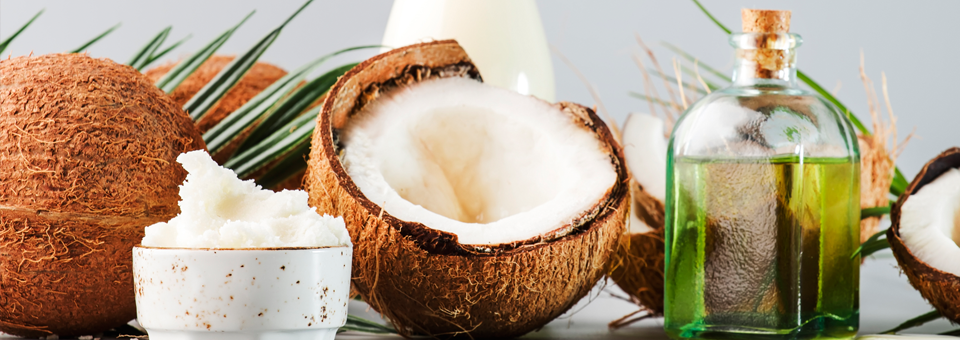Good old-fashioned lard has been unfairly demonized for too long.
I’ve told you how my grandmother made her pie crusts with lard and how most people used it until the government told us that animal fat caused heart disease. As a regular reader, you know that’s just not true. Your body needs animal fat to use as food and to help absorb important nutrients.
But what about other oils that are being touted as “healthy?” These oils are used in prepared foods like sandwiches, chicken salad, soups or even a loaf of whole grain bread. They are on the shelves at every “health food store,” yet they are some of the most unhealthy oils you’ll find.
I’m talking about seed oils.
Research shows these oils are linked with all the chronic diseases they’re supposed to help you avoid, including heart disease, diabetes and cancer.
Industrialized seed oils, often called vegetable oils, are hard to avoid. They’re in everything from peanut butter to crackers and salad dressings.
And though seed oils and vegetables may sound like natural foods, they’re the farthest thing from it.
While native cultures put animal fats at the center of their diet and show no trace of heart disease, they never ate seed oils because they are chemically processed, lab-created oils and they don’t exist in nature. We never evolved to properly metabolize or digest them.
In the early 1900s, Proctor and Gamble began using a chemical process called hydrogenation to turn cottonseed oil into a solid fat that could be used for cooking instead of lard. The result, in 1911, was Crisco.1
The success of the world’s first vegetable shortening led to the marketing of soybean, corn, safflower, and canola (made from rapeseed) oils. They were cheap to make and manufacturers pushed them hard on the
public. Soon, they were a staple of American cooking.A few years later, the concept that cholesterol and saturated fat cause heart disease was first presented by a physiologist named Ancel Keys. Even though there were epidemiologists at the time who strongly disputed his findings, the hypothesis that animal fats raise the risk of heart attacks became conventional wisdom in mainstream medicine.2
As I’ve been saying for years, this is entirely wrong, and research bears this out.3
As a substitute for animal fats, Keys urged people to consume—you guessed it—seed oils. He championed polyunsaturated fats (PUFAs) from plant-based foods as a superior alternative.
Over time, this erroneous belief became entrenched in mainstream medicine.
Doctors and medical organizations such as the National Institutes of Health and the American Medical Association declared war on animal fats. They strongly suggested lard and tallow should be avoided for cooking in favor of vegetable-based shortenings such as Crisco, corn oil or soybean oil. They insisted people should stop buying butter and use solid seed oil—margarine—instead.
It’s incredible, because scientific support for this nonsense is mainly based on deeply flawed, outdated studies from the ’50s and ’60s.
I recommend you rid your kitchen pantry of any vegetable shortenings such as Crisco and any of these oils: sunflower, cottonseed, soybean, corn, peanut, safflower, and canola.
Second, make a point of avoiding processed foods. These often contain seed oil in the form of hydrogenated or partially hydrogenated vegetable oil. The worst offenders include cookies, cakes, fried foods, frozen pizzas, margarine, biscuits, artificial coffee creamers, microwave popcorn, and pies.
The healthy fats I recommend instead of seed oils include:
- Coconut oil. This healthy fat continues to get a bad rap. But, it’s made up of medium-chain triglycerides (MCTs), which are good for your brain and boost your immunity.4,5 They also prevent osteoporosis, protect your liver, and help your body burn fat.6,7,8
- Extra Virgin Olive Oil. Studies show it protects against cancer, heart disease, stroke, obesity, Alzheimer’s, and arthritis.9 To make sure you’re getting the real thing, check the bottle labels. Look for these acronyms: PDO, DOC, DO, or DOP. These are European certifications of quality. The COOC (California Olive Oil Council) serves the same function for American-made olive oils. Also, only buy olive oil in dark or opaque containers. Exposure to light causes oxidation and rancidity.
- Lard. Rendered from pig fat, it’s mainly made up of monounsaturated fat, the same as olive oil. But, it’s also rich in healthy saturated fat and a good source of vitamin D. Make sure the lard comes from a natural source. Check the label to be sure it hasn’t been hydrogenated to extend shelf life. If it’s not refrigerated, don’t buy it.
- Tallow. Fat rendered from any animal other than pigs—usually beef—is called tallow. It has a high smoke point which means it’s excellent for cooking. Tallow is high in saturated and monounsaturated fats. Look for tallow from grass-fed cows—it’s higher in omega-3s. Like lard, tallow helps you absorb essential vitamins and helps keep your skin hydrated.
Other great sources of dietary fats include wild-caught fatty fish, avocados, and nuts such as almonds, walnuts, and pistachios.
To Your Good Health,

Al Sears, MD, CNS
1. “Crisco.” Wikipedia (wikipedia.org), accessed 10/27/20
2. “Ansel Keys.” Wikipedia (wikipedia.org), accessed 10/27/20
3. Harcombe Z. “US dietary guidelines: is saturated fat a nutrient of concern?” British Journal of Sports Medicine 2019;53:1393-1396.
4. “America’s most widely consumed cooking oil causes genetic changes in the brain.” University of California (http://health.universityofcalifornia), accessed 10/28/20
5. “Coconut Oil Offers Hope for Antibiotic-Resistant Germs” Coconut Oil (coconutoil.com), accessed 10/28/20
6. Hayatullina, Z., et al. “Virgin coconut oil supplementation prevents bone loss in osteoporosis rat model.” Evidence-based complementary and alternative medicine : eCAM, 2012, 237236.
7. Nagao, K., et al. “Medium-chain fatty acids: functional lipids for the prevention and treatment of the metabolic syndrome.” Pharmacological research, 61(3), 208–212.
8. Otuechere, C. A., et al. “Virgin coconut oil protects against liver damage in albino rats challenged with the anti-folate combination, trimethoprim-sulfamethoxazole.” Journal of basic and clinical physiology and pharmacology, 25(2), 249–253.
9. “11 Proven Benefits of Olive Oil” Healthline (healthline.com), accessed 10/28/20

